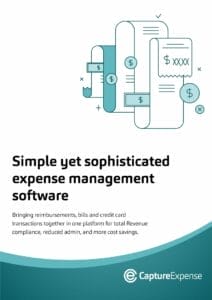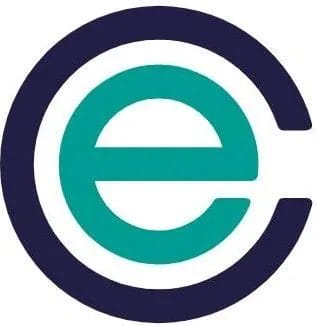Revenue is putting more and more effort into helping businesses of all sizes follow their rules and establish good financial practices. However, understanding expense compliance can still be tricky, and the penalties for mistakes can be serious.
To help you better understand and comply with Revenue’s guidelines, we’ve created this comprehensive guide. Here, you’ll find clear and practical advice on claiming and processing expenses in Ireland, ensuring you stay on the right side of the regulations while maximising your financial efficiency.
Whether you’re a small startup or a large corporation, this guide aims to illuminate the path to seamless expense compliance in Ireland.
How to make sure your business complies with Revenue
Many people think Revenue inspectors only care about completed expense claims and receipts, but they actually review your entire travel and expense process.
The 6 key areas Revenue inspectors focus on
1. A clear and enforced policy
Make sure your business has a clear expense policy that all employees understand and follow.
2. Appropriate approval processes
Ensure that the right people are approving expenses at the right levels.
3. Appropriate documentation
Keep detailed records of all receipts and expense forms.
4. Appropriate checks and controls
Implement checks and controls to prevent errors and fraud. Regularly review these controls to ensure they are effective.
5. Tax and VAT compliance
Ensure that all expenses comply with tax and VAT regulations. You need to keep up to date with any changes in these regulations.
6. A robust and secure payment process
Use secure methods for reimbursing employees. Ensure payments are processed accurately and on time.
The VAT rates in Ireland
VAT is a general consumption tax that is charged directly on the sale of goods and services in Ireland.
Here are the rates for 2025:
| Rate | Type | Goods and services |
| 23% | Standard | All other taxable goods and services |
| 13.5% | Reduced | Some foods, pharmaceutical products, children’s car seats, energy products and supplies, supply and development of immovable goods. |
| 9% | Reduced | Some foods, newspapers, admission to cultural events, admission to sports facilities, hairdressing. |
| 5.1% | Reduced | Livestock and agricultural supplies. |
| 0% | Zero | Some foods, animal feed, medical equipment, children’s products. |
It’s also worth noting that the supply of some services, such as financial, medical and educational services, are exempt from VAT.
Who can reclaim VAT?
If you are selling goods or services that are subject to VAT, or you are involved in qualifying activities, you can reclaim VAT.
To do this, you need to submit a VAT 3 return. However, you cannot reclaim VAT on goods or services used for making exempt supplies or for non-business activities.
For costs that relate to both taxable and non-taxable activities, you can only reclaim the VAT portion related to your taxable supplies.
It’s also worth mentioning that you have up to four years to claim a VAT repayment.
What VAT can you not reclaim?
You cannot reclaim VAT on the following costs, even if you are registered for VAT and make only taxable supplies:
- Food, drink, or personal services for you, your agents, or employees (unless part of a taxable service)
- Accommodation (unless related to a qualifying conference)
- Food, drink, accommodation, or entertainment included in advertising costs
- Passenger motor vehicles (except stock or qualifying vehicles)
- Petrol (unless used as stock-in-trade)
- Contract work involving non-deductible goods
- Goods subject to a margin scheme
- Costs for property used for non-business purposes
Civil service mileage rates in Ireland
You can reimburse your employees for using their personal vehicles for business journeys. This does not include commuting from home to their normal place of work.
You have the option to either reimburse the actual travel expenses incurred by the employee or provide a fixed mileage allowance per kilometre.
Here are the new civil service rates for mileage allowance in Ireland for 2025, effective from 1st September 2023.
Civil service motoring and bicycle rates
Cars (rate per kilometre)
Motor travel rates (from 1 September 2022)
| Distance band | Engine capacity up to 1200cc | Engine capacity 1201cc – 1500cc | Engine capacity 1501cc and over |
| Up to 1,500 km (Band 1) | 41.80 cent | 43.40 cent | 51.82 cent |
| 1,501 – 5,500 km (Band 2) | 72.64 cent | 79.18 cent | 90.63 cent |
| 5,501 – 25,000 km (Band 3) | 31.78 cent | 31.79 cent | 39.22 cent |
| 25,001 km and over (Band 4) | 20.56 cent | 23.85 cent | 25.87 cent |
For electric vehicles, mileage claims will follow the rate applicable to engine capacity 1201cc-1500cc.
Reduced motor travel rates per kilometre
| Engine Capacity up to 1200cc | Engine Capacity 1201cc to 1500cc | Engine Capacity 1501cc and over |
| 21.23 cent | 23.80 cent | 25.96 cent |
Reduced mileage rates apply to work-related journeys that aren’t solely for job performance. Examples include attendance at approved courses or conferences.
Motorcycles (rate per kilometre)
Motorcycle rates (from 5 March 2009)
| Distance | Engine capacity up to 150cc | Engine capacity 151cc – 250 cc | Engine capacity 251 cc – 600 cc | Engine capacity 601cc and over |
| Up to 6,437 km | 14.48 cent | 20.10 cent | 23.72 cent | 28.59 cent |
| 6,438 km and over | 9.37 cent | 13.31 cent | 15.29 cent | 17.60 cent |
Bicycles
Bicycle rates (from 1 February 2007
| Rate per km | 8 cent |
If you’re interested in learning more about Civil Service Mileage Rates and how to calculate mileage claims click here.

Get the latest insights and product updates, direct to your inbox.
The civil service subsistence rates for 2025
Rates for assignments within the State
Overnight allowance
Domestic overnight subsistence rates (from 29th January 2025)
| Rate category | Rate |
| Normal rate | €205.53 |
| Reduced rate | €184.98 |
| Detention rate | €102.76 |
The overnight allowance applies to assignments lasting up to 24 hours. The assignment must be at least 100 kilometres from your employee’s home and regular workplace.
The rate category is determined by the duration of the assignment:
• The normal rate applies for up to 14 nights.
• The reduced rate applies for the following 14 nights.
• The detention rate applies for each of the next 28 nights.
For assignments exceeding 56 nights, your employee must apply to Revenue to confirm that subsistence is still available.
The period of subsistence at any single location is limited to six months.
Day allowances
Domestic day subsistence rates (from 29th January 2025)
| Period of assignment | Rate |
| Ten hours or more | €46.17 |
| Between five and ten hours | €19.25 |
The assignment must be more than eight kilometres from your employee’s home and normal workplace. It’s also worth noting that they can only claim both a day and overnight allowance if they work five hours or more the next day.
Rates for assignments outside the State
Short term assignment
Subsistence rates for short term assignments
| Period of assignment abroad | % of normal overnight rate |
| First month | 100% |
| Second and third month | 75% |
| Fourth, fifth and sixth month | 50% |
These rates can be applied to a single temporary assignment abroad lasting up to six months.
Long term assignment
A long-term assignment lasts over six months. During the initial month, you can provide subsistence at the overnight rate to help your employee find self-catering accommodation. For the rest of the assignment, you can cover reasonable accommodation costs and 50% of the ten-hour day rate.
If you have remote working expenses
You can make a payment of €3.20 per workday to a remote working employee without deducting:
This payment is to cover expenses incurred such as broadband, heating and electricity costs.
And for expenses higher than €3.20 per workday
Your employee’s daily expenses might go over €3.20, and you can reimburse them for these costs. However, if the amount exceeds €3.20 per workday, you need to deduct tax from it.
Make sure to keep records of all the payments made.
What you need to know about Enhanced Reporting Requirements
Starting January 1, 2024, your finance teams in the Republic of Ireland must adhere to updated payment reporting regulations; known as Enhanced Reporting Requirements (ERR). These regulations enhance transparency in expenditure but present challenges for timely compliance. The new reporting requirements are introduced by Section 897C of the Finance Act 2022.
What needs to be reported?
1. Small benefit exemption: you need to report the date paid and the value of the benefit.
2. Remote working daily allowance: report the total number of days, amount paid, and date paid.
3. Travel and subsistence payments: report the date paid and amount for each payment under the following categories:
- Travel (vouched and unvouched)
- Subsistence (vouched and unvouched)
- Site-based employees (including ‘country money’)
- Emergency travel
- Eating on site
How to report this
- Payments must be reported to Revenue at the time of payment or in advance.
- Submit reports via the Revenue Online Service (ROS), either manually or using accounting or ERP software.
What you need to know about digital record-keeping
In Ireland, you can go paperless by storing receipts digitally instead of keeping paper copies.
However, you must follow certain requirements to comply with the rules on storing, maintaining, transmitting, reproducing, and communicating records electronically.
One example of these requirements is ensuring the scan quality is high enough for the receipt to be easily readable.
You can find all the necessary requirements in Revenue’s Electronic Storage manual.
4 easy steps to comply with Revenue
Here’s a very brief overview of what you need to do to make sure your business is fully compliant:
Step 1: designate specific individuals at appropriate levels to approve expenses
- Make sure that each expense is reviewed and authorised by someone with the appropriate level of authority and responsibility within your organisation, thereby maintaining accountability and preventing misuse of funds.
- Ensure even the highest-ranking employees submit their expenses for approval.
Step 2: maintain a traceable audit trail
- Use an expense management system that tracks every step of the process.
- Make sure that every expense is logged and traceable from submission to approval and reimbursement.
Step 3: keep valid evidence
- Always obtain valid VAT receipts and credit card slips for expenses.
- Attach these receipts to the corresponding expense claims.
Step 4: find an expense management system that fully complies with Revenue’s regulations
- It is essential to identify an expense management system. like Capture Expense, that ensures complete compliance with all of Revenue’s regulations.
By following these guidelines, you can ensure your business meets Revenue’s requirements and is prepared for an inspection.
The expenses software for total Revenue compliance
Get all the features and functionality you need to keep your employee expenses compliant, in one central platform. Book a demo to see Capture Expense in action.

Expenses Software for Total Revenue Compliance
Bringing reimbursements, bills and credit card transactions together in one platform for total Revenue compliance, reduced admin, and more cost savings.

